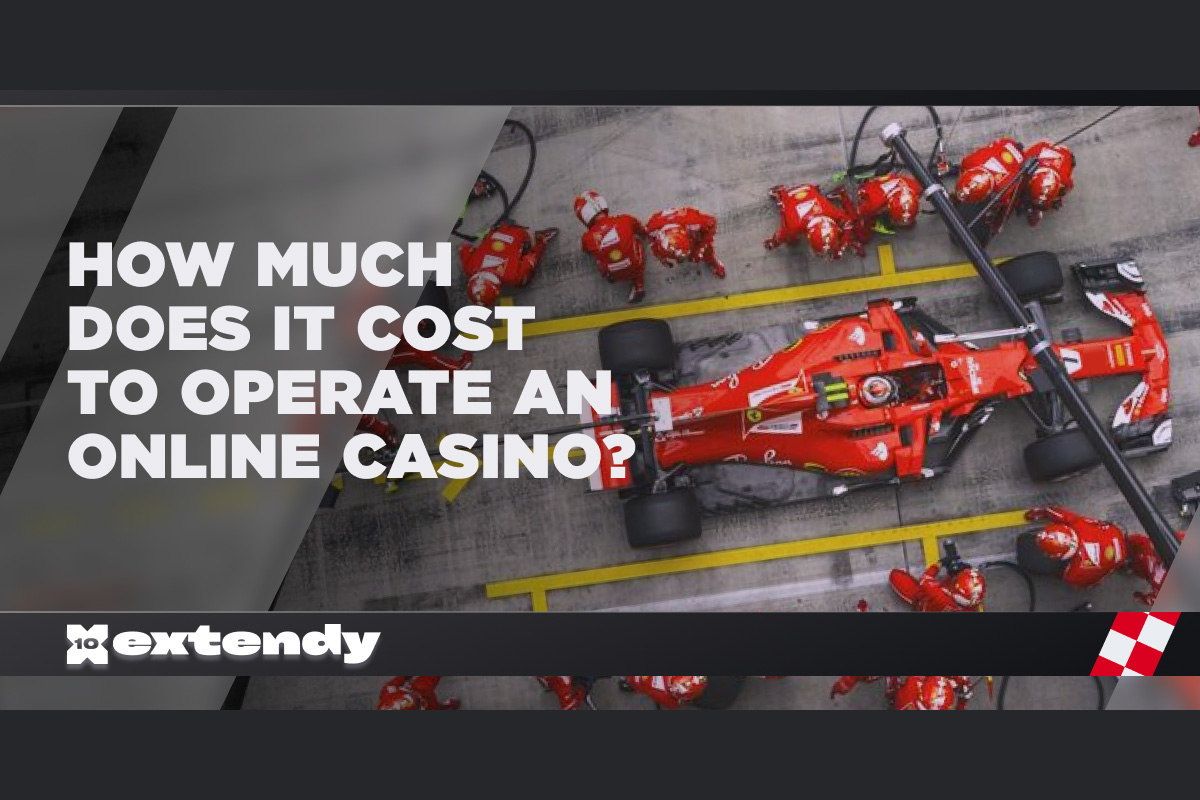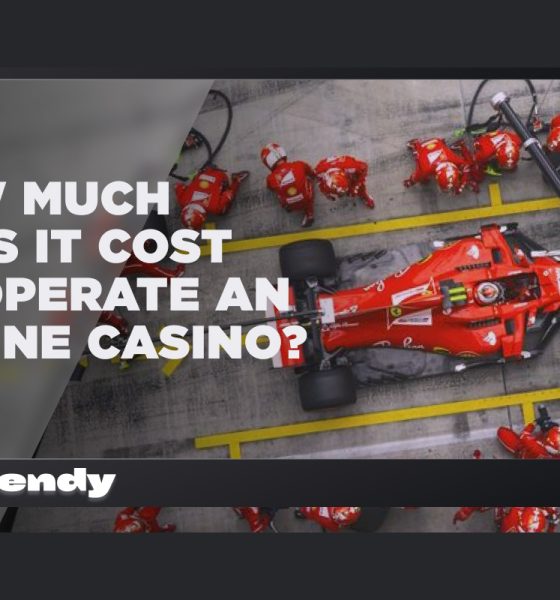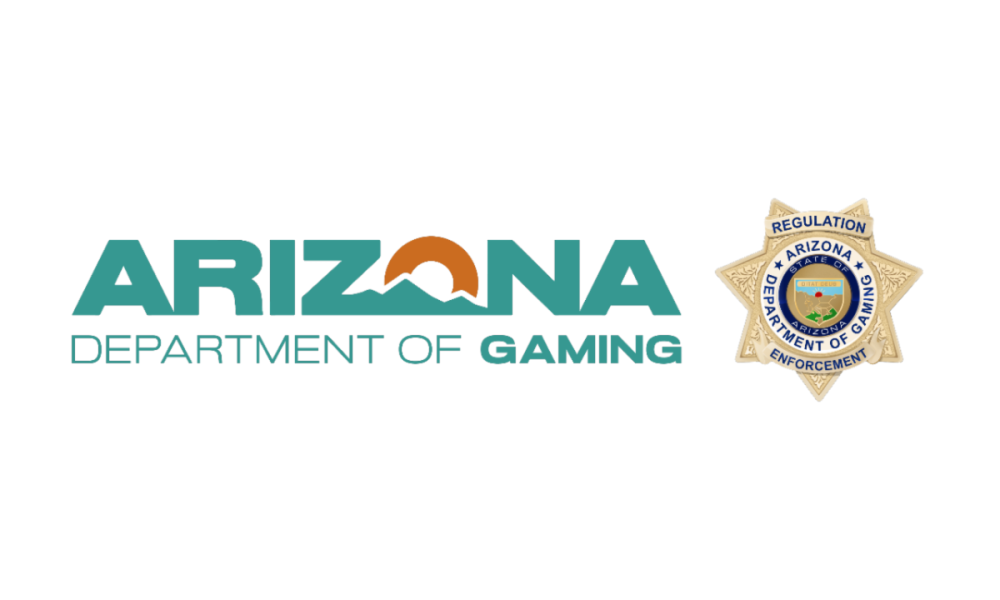

Latest News
Extendy. How much does it cost to operate an online casino?
When thinking about launching their own online casino, many arbitrageurs consider a white label solution as the best option. With so many platforms on the market to choose from, it’s no wonder that many may feel deterred by all the work involved. Fully-fledged, high-level operations are offered only by a few white label casinos. What’s more, attempting to launch an online casino by one’s self essentially involves building a new business from scratch with all the risks and pitfalls that accompany it.
In this article, we will discuss all that goes into launching and operating an online casino based on one of our experience, the main departments and tasks involved, the number of employees needed at the start, and the costs involved in employing teams of iGaming professionals.

Payment Processing / PSP
Deals with player payment processing – from connecting payment methods to quickly resolving issues with deposits.
While part of the team monitors deposit drops, the other works ‘on the front line’ 24/7. This involves handling all player requests, and financial reconciliation. The Payment Processing department also ensures the necessary number of payment methods and their proper functioning: searching by GEO, signing, testing, integration, routing (switching payment methods), and communicating with payment account managers.
Included in the tasks of the Payment Processing team are helping to avoid signing unreliable payment methods, ensuring quick onboarding and annual payment method verification, quickly resolving deposit issues, and thus avoiding additional chargeback fees.
The department includes monitoring managers, inbound request handlers, business developers, lawyers, account managers, and technical specialists. To set up a PSP team would require at least 5 employees, with the cost of the team starting from €9000 depending on the location.
Payments, Risk & Fraud
Handles KYC, regulates payments, conducts checks when necessary, and identifies and combats fraud. While the team primarily uses automated solutions in their daily tasks, a significant part of the daily work is performed by employees.
Payment verification is carried out in several stages. Identifying fraud sometimes resembles detective work – one needs to study the overall behavior of different groups of players and look for patterns. Fraud is constantly evolving which also means employees in this department will be continuously analyzing, adjusting and tweaking processes to prevent fraudulent clients from returning, and to prevent various risks, including license complaints.
The department’s work affects direct potential losses from fraud, which can be quite substantial. A few months back, thanks to the quick work of the Payment, Risk and Fraud’s team, we were able to promptly identify and prevent a potential case of abuse of funds which could have cost us several hundred thousands of dollars.
When setting up a Payment, Risk and Fraud team, you could expect small volumes of FTDs (First Time Deposits). This means you can start off with a team of 6 employees which would cost around €9000 a month. Training employees and finding employees who are well-experienced in identifying unusual fraudulent schemes can prove to be particularly difficult, so these aspects should be taken into consideration.
CRM
Responsible for tournaments and gamification, this department’s key functions are player retention and upselling. The functionality can vary depending on which CRM system is used: more advanced solutions allow you to set up more flexible chains of actions and bonuses, quickly connect new GEOs, introduce player missions, and much more. However, such systems require more experienced employees to launch and manage activities for different segments of players, including VIPs.
When setting up your online casino, you could be looking at recruiting three CRM managers for one brand, and, depending on the location and the managers’ experience, the cost could begin at around €8000. Once again, it is important to consider the few experienced specialists on the market which could mean the price could be even higher.

Game Management
Responsible for negotiating with game providers and discussing promotions with game studios. The game management department also handles the placement of games on the casino site while taking the GEO into account. For instance, players in different countries will likely prefer different games. Localisation and dedicating proper prioritization to players will help increase casino revenue.
Specialists with a deep understanding of games and the markets might be hard to come by, and the cost of one manager when setting up a brand could start at around €2000 depending on the location.
Content
Responsible for player communication. This includes explaining tournament rules, drafting marketing material about upcoming tournaments and campaigns, drafting notifications, email newsletters, Gamble Addiction & Anti-Money Laundering policies, payout rules, various terms and conditions, and much more.
Discrepancies in the terms and conditions of ongoing tournaments can lead to thousands of support requests and even more serious consequences such as discrepancies in payout limits indications, followed by player complaints and license revocation.
When launching your content department, each language team can consist of 3 content writers who are native speakers of the language they are writing in, with each team costing around €5000 per month.
BI Analytics
One of the most important departments in an online casino, its main aim is to help the business make the right decisions. BI is critical for marketing, VIP management, CRM, antifraud, payments, and much more. The analytics team processes huge amounts of data from various sources, allowing other departments to monitor important metrics, evaluate efficiency, and optimize work.
Building an effective BI Analytics department can take up to a year and costs start from around €300,000 per year. The main expenses are the employees, software, and hardware. We should point out that investing more in the employees, or choosing rather to invest in the software aspect will have an effect on the level of automation but will not significantly impact the final cost.
While “Ready-made solutions” usually provide access to an analytical solution, there still needs to be someone who will manage it. Therefore, an operational team with high expertise is needed. Its size can vary from 5 to 20 employees depending on the tasks and solutions used. On average, the cost of the team’s work, including software and hardware expenses will be around €25,000 euros per month. An analytics team can start out with three employees, and can cost about €14,000 euros per month.
Support
This is the first point of communication for players, and the quality of the department’s work directly affects player retention and loyalty. Properly written player communication scripts, case resolution algorithms, and team training help with this.
Support agents work 24/7 to help solve various problems encountered by players regarding fund deposits and withdrawals, player and payment verification, and account settings. Customer support agents also explain tournament rules, promotions and campaigns, as well as casino features such as bonuses, missions, etc.
An effective customer support team usually includes between 20 to 70 customer support agents, depending on the level of automation and the GEOs involved. As the number of GEOs grows, finding enough employees with the required language skills and suitable experience can be a challenge. When setting up a customer support team, you need to consider starting out with at least 6 people, and the cost of this team would be around €7000.
Call Center
Partially complements support functions in solving new player problems but also performs other important business tasks, such as reactivation. A properly set up call center could mean a return of up to 20% of players.
Another function of call centers is collecting feedback and passing it onto the product team. For example, optimizing bonuses could result in players receiving more attractive rewards and an increase in deposits for the casino.
A call center department can start off with two employees, and can cost around €3000 per month.
VIP Management
Working with VIP players is key in casino operations, ensuring retention of high-paying clients and revenue growth. VIP managers develop a VIP management strategy and set metrics to classify clients as VIPs, such as average bet size, frequency of play, or deposit amount.
The main principle in working with VIPs is to provide a highly personalized service through creating exclusive promotions and bonuses based on the VIP players’ preferences and actions on the site. Unique bonus calendars need to be developed for each product the client plays: casino, sports, live.
The VIP manager should have a good sense of the player, a desire to solve problems, and have a sense of empathy, as well as be able to upsell bonuses, games, and other offers to the client.
The department also handles objections, resolves complex cases, and legal issues together with lawyers and other departments such as Risk & Fraud.
When starting out, a VIP department can consist of two managers, and should cost around €6000.

Conclusion
When launching an online casino, you’ll be looking at a minimum of 30 professionals and a minimum monthly cost of €63,000. This amount is based on CIS countries and only includes the net salaries of department heads and employees, mainly at mid-level. When hiring on the international market or head-hunting the best industry professionals, you could be looking at double the cost per team, and possibly higher.
Extendy is a white label solution that offers turnkey operations without additional costs for partners. We look forward to discussing the possibilities of launching your online casino brand. Reach out to us by filling in an application on the website if you want to discuss the possibility of cooperation and launching your casino brand with us.
The post Extendy. How much does it cost to operate an online casino? appeared first on European Gaming Industry News.
Latest News
Arizona Department of Gaming and Arizona Lottery Announce Proclamation Recognizing September 2025 as Responsible Gaming Education Month

State agencies join forces to raise awareness, promote prevention, and provide tools for safe and responsible play.
The Arizona Department of Gaming (ADG) and the Arizona Lottery are proud to announce a joint effort in support of a new Proclamation recognizing September 2025 as Responsible Gaming Education Month in Arizona.
Responsible gaming is about ensuring that individuals who choose to play have the tools, resources, and knowledge they need to make informed decisions and enjoy gaming as a form of entertainment. While problem gambling initiatives focus on helping those already experiencing harm from gambling, responsible gaming emphasizes prevention by encouraging healthy play behaviors before they reach a critical point.
Throughout September, and continuing in the months ahead, the ADG and Arizona Lottery will work together to strengthen education and awareness initiatives. The goal is to equip players with strategies and resources that help them keep gaming fun and safe, while helping reduce the risks associated with problem gambling.
“For over 30 years, the Arizona Department of Gaming has safeguarded the integrity of gaming through strong consumer protections, enforcement against illegal operators, and support services for those impacted by problem gambling,” said Jackie Johnson, Arizona Department of Gaming Agency Director. “During Responsible Gaming Education Month, we remind everyone that part of playing responsibly is being informed—always double-check before you place your bet to ensure you are using a legal, regulated operator at gaming.az.gov/checkyourbet.”
The Arizona Lottery also remains steadfast in its commitment to responsible play and has a Level 2 certification with the World Lottery Association for responsible gaming. Lottery games benefit the people of Arizona by generating critical revenue that funds education, healthcare, environmental conservation, and economic development. At the same time, the Lottery prioritizes the well-being of its players. Each ticket includes clear odds of winning, vending machines display game odds, and the 1-800-NEXT-STEP helpline is featured across Lottery products and advertising.
“We are proud to deliver entertainment that benefits communities across our state, while recognizing our responsibility to promote safe play,” said Alec Thomson, Arizona Lottery Executive Director. “Through transparency and awareness, we want every player to have the tools they need to make informed decisions and enjoy the Lottery responsibly.”
As Arizona observes Responsible Gaming Education Month, ADG and the Arizona Lottery encourage all players to stay informed, know their limits, and seek help if needed. Together, we can ensure that gaming remains a source of entertainment that strengthens, rather than harms, Arizona communities.
For more information and resources, visit gaming.az.gov/ResponsibleGaming or ArizonaLottery.com/ResponsibleGaming. If you or someone you know may be struggling with problem gambling, call or text 1-800-NEXT-STEP for confidential support available 24/7.
The post Arizona Department of Gaming and Arizona Lottery Announce Proclamation Recognizing September 2025 as Responsible Gaming Education Month appeared first on Gaming and Gambling Industry in the Americas.
Canada
absolutebet Secures AGCO Registration as an Internet Gaming Operator in Ontario

Internet Gaming Operator by the Alcohol and Gaming Commission of Ontario (AGCO).
This significant milestone authorizes absolutebet to offer regulated iGaming services in Ontario’s legal market under the oversight of AGCO and iGaming Ontario (iGO).
The registration marks a key step in absolutebet’s mission to bring a trusted, responsible, and innovative online casino experience to Ontario players. absolutebet is committed to operating with integrity and transparency, meeting all provincial standards for player protection, responsible gambling, anti-money laundering, and game integrity.
“Securing AGCO registration is more than a milestone—it’s the start of absolutebet’s journey in one of the most exciting regulated markets in the world,” said Chen Truman, Founder of absolutebet. “We are building a brand that will grow with the Ontario community and set the stage for future expansion.”
On the regulatory milestone, Krisztina Kalla, Legal & Regulatory Compliance Advisor of absolutebet, commented: “I’m incredibly proud to see all the hard work behind this license pay off. Securing AGCO registration has taken months of preparation and close collaboration with regulators and partners. I am very happy to see the result of that work, and even more excited as we move into the launch phase and open up the absolutebet community to Ontario players in a fun and responsible way.”
Ontario is recognized as one of the most competitive and fast-growing regulated iGaming markets in North America. With AGCO registration secured, absolutebet will move forward with the final stages of its iGO onboarding process in preparation for launch.
The post absolutebet Secures AGCO Registration as an Internet Gaming Operator in Ontario appeared first on Gaming and Gambling Industry in the Americas.
Latest News
VeliTech Appoints Mats Lundin as Chief Sales Officer

Seasoned iGaming executive brings decade of commercial expertise to drive B2B growth
VeliTech, the B2B technology division of Veli Group, today announced the appointment of Mats Lundin as Chief Sales Officer (CSO). Lundin brings over 10 years of commercial leadership experience across the iGaming sector to accelerate VeliTech expansion as operators worldwide seek battle-tested platform solutions.
In his new role, Lundin will spearhead VeliTech global sales strategy, focusing on delivering the company’s comprehensive suite of iGaming solutions to operators seeking proven technology backed by real-world performance. His appointment reinforces VeliTech commitment to partnering with operators who demand more than promises – they want technology that is already winning in the market.
“Mats embodies the kind of proven expertise that our operator partners expect,” said Giorgi Aleksidze, CEO at VeliTech.
“His track record of building meaningful relationships and driving revenue growth aligns perfectly with our approach of backing our technology with real results. When we say we bet on our tech, we need leaders who understand what that means in practice.”
Lundin joins VeliTech from Vegangster, where he served as Sales Manager. His career spans key roles including Director of Sales and Chief Commercial Officer at Gaming Corps, Head of Sales at iSoftBet, and various commercial positions where he consistently delivered revenue growth and market expansion
“What drew me to VeliTech is their unique position in the market,” said Lundin.
“This is not just another platform provider making bold claims – this is a team that operates their own gaming brands and proves their technology works where it matters most. That combination of technical excellence and real-world validation creates compelling value for operators.”
Throughout his career, Lundin has specialised in provider and operator relationship management, regulatory navigation, and market analysis. His expertise spans both B2B and B2C sectors, with a proven ability to identify growth opportunities and translate them into sustainable commercial success.
The VeliTech platforms cover all critical aspects of iGaming, including player account management, no-code CRM, payment gateway, content aggregation, and game development. The appointment of Lundin as CSO comes as the company continues expanding its presence across regulated markets, from European casinos to emerging African markets.
The post VeliTech Appoints Mats Lundin as Chief Sales Officer appeared first on European Gaming Industry News.
-

 gaming3 years ago
gaming3 years agoODIN by 4Players: Immersive, state-of-the-art in-game audio launches into the next generation of gaming
-
EEG iGaming Directory8 years ago
iSoftBet continues to grow with new release Forest Mania
-
News7 years ago
Softbroke collaborates with Asia Live Tech for the expansion of the service line in the igaming market
-
News7 years ago
Super Bowl LIII: NFL Fans Can Bet on the #1 Sportsbook Review Site Betting-Super-Bowl.com, Providing Free Unbiased and Trusted News, Picks and Predictions
-
iGaming Industry8 years ago
Rick Meitzler appointed to the Indian Gaming Magazine Advisory Board for 2018
-
News7 years ago
REVEALED: Top eSports players set to earn $3.2 million in 2019
-
iGaming Industry8 years ago
French Senator raises Loot Boxes to France’s Gambling Regulator
-
News7 years ago
Exclusive Interview with Miklos Handa (Founder of the email marketing solutions, “MailMike.net”), speaker at Vienna International Gaming Expo 2018









